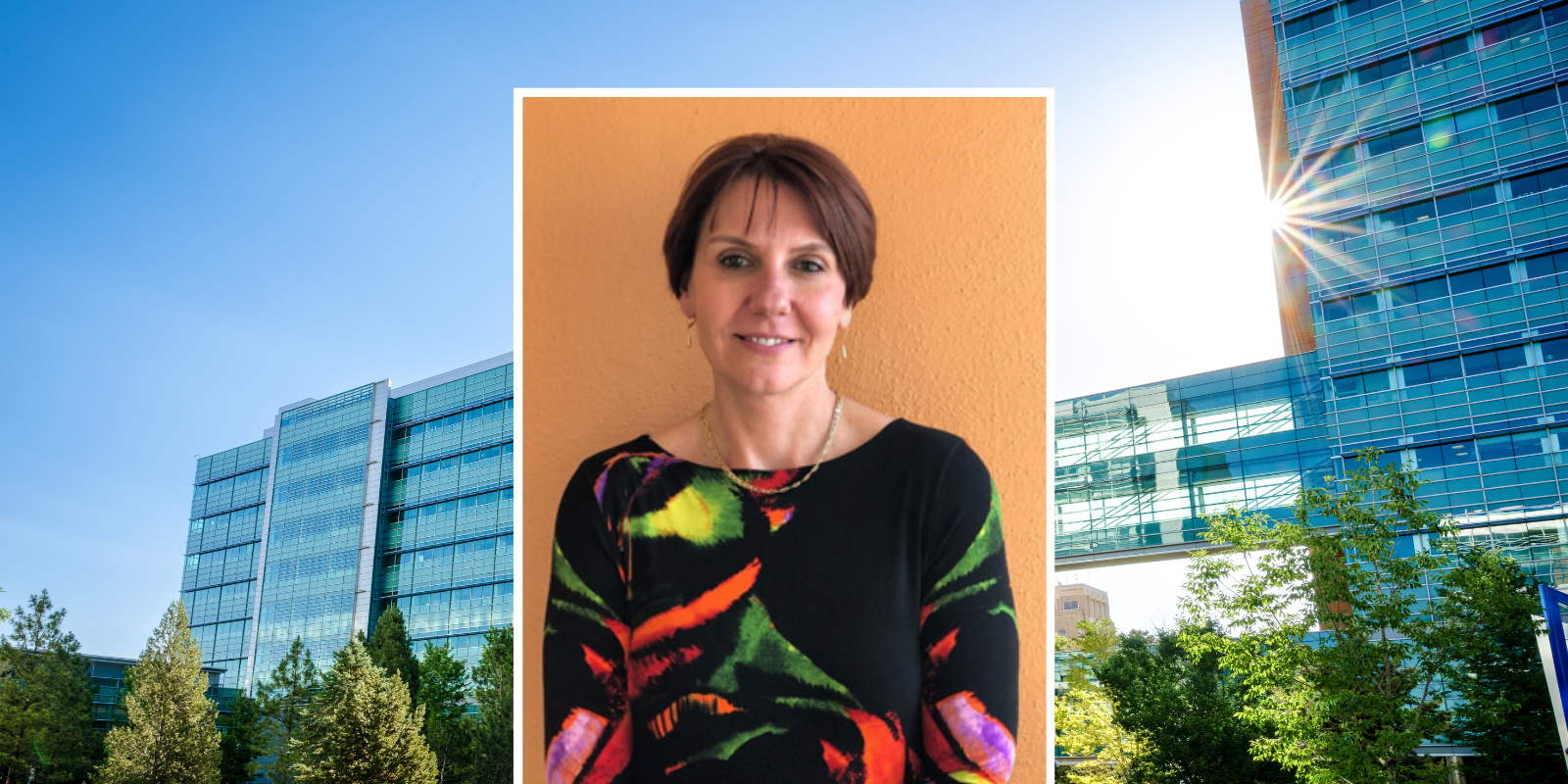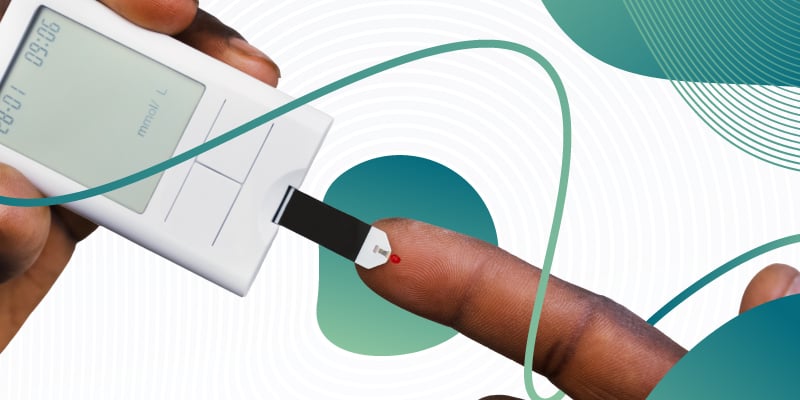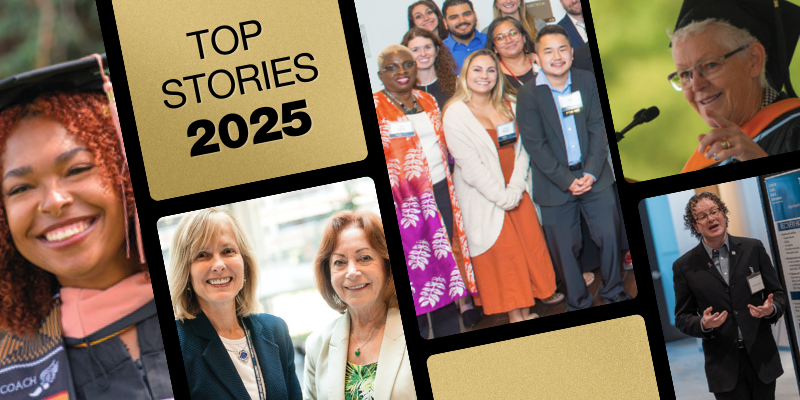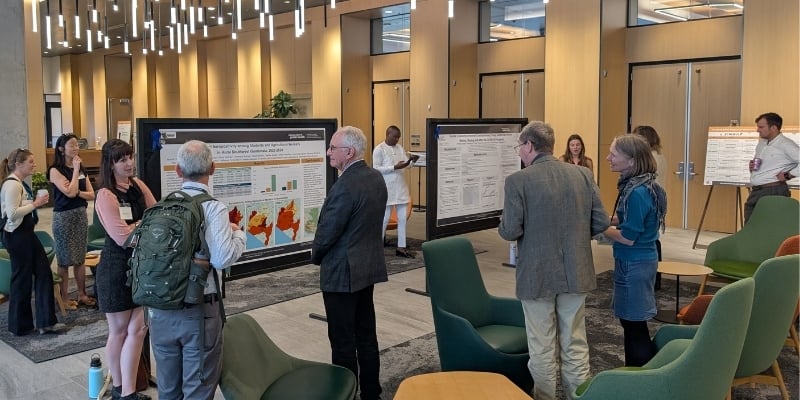Dr. Dana Dabelea, MD, PhD, the founder and director of the Lifecourse Epidemiology of Adiposity and Diabetes (LEAD) Center at Colorado School of Public Health, has had an eventful 2024. She will write the next chapters in her story in the remaining months and well beyond.
Last February, the University of Colorado Anschutz Medical Campus recognized Dabelea’s work with its first-ever Chancellor’s Distinguished Research Lectureship Award. The award celebrated her career commitment to studying diabetes – its causes, long-term effects, and ways to prevent the disease in both children and adults.
“I was deeply honored by having been nominated and selected by my colleagues,” Dabelea said. “I’m grateful to all those who consider my research worthy of the award.”
In April 2024, Dabelea’s commitment to driving new discoveries in all fields deepened, as she was named Associate Dean for Research at ColoradoSPH.
Dabelea will reflect further on her life’s work September 17 with a presentation entitled, “My Journey in Lifecourse Diabetes Research,” at 4:00 p.m. in the Hensel Phelps West Auditorium on the CU Anschutz Campus.
A long battle against diabetes
That journey began in in 1994 with Dabelea’s residency in Diabetic and Metabolic Disease at the University of Medicine and Pharmacy in Timisoara, Romania, where she focused primarily on Type 1 diabetes, the autoimmune disease that destroys the body’s ability to produce insulin. She later immigrated to the United States, where she completed a fellowship in the Division of Intramural Research with the National Institute of Diabetes and Digestive and Kidney Diseases (NIDDK).
In that role, Dabelea focused her research on the Pima Indians of southern Arizona, a population badly injured by Type 2 diabetes, which disrupts the body’s ability to use insulin to metabolize blood sugar. Her work yielded important insights, including the role that maternal obesity and diabetes played in increasing the risk of obesity and Type 2 diabetes in children.
That work spurred further research after Dabelea joined the faculty of the University of Colorado School of Medicine 25 years ago. She launched the LEAD Center in 2015 as a collaboration between ColoradoSPH, the CU School of Medicine’s Department of Pediatrics, and Children’s Hospital Colorado.
The LEAD Center has proven to be a force in the field. Dabelea and her LEAD Center colleagues drive a wide variety of studies and have published dozens of papers focused on the lifetime risks and consequences of diabetes and strategies to prevent it. The center also champions the training of new researchers, a topic Dabelea said she intends to cover in her September 17 presentation.
“I will talk a little about my formative years in Romania and how they informed the transformative years when I continued my training with the NIDDK,” Dabelea said. “That will link to what I’ve done at the University of Colorado with establishing the LEAD Center. That has taken my research to another level because it is now multiplied by a number of other very talented researchers who are taking things in their own way and solving important problems in diabetes, obesity, and other related conditions.”
Joining hands with fellow researchers
Important as Dabelea’s roles as director and dean are, she is still enthusiastic about teaching and learning from others. That was evidenced this August when she attended the 14th Cambridge Diabetes Seminar, presented by the Medical Research Council Unit at the University of Cambridge School of Clinical Medicine. The seminars began in 1981; Diabetes also attended in 2019 as a faculty member. This year, she said, she lectured on both Type 1 and Type 2 diabetes in children and listened attentively to presentations by colleagues from around the world.
“The seminar is a forum to train international researchers and physician scientists from across the globe in diabetes research, with a focus on epidemiology,” Dabelea said. “It has trained numerous researchers, some of whom are now faculty.”
Dabelea said she spent the week-long seminar “immersed in the science,” and learned from others different strategies for confronting diabetes. For example, she noted, many researchers and clinicians in the United States are working on perfecting technologies, such as continuous glucose monitors, to manage diabetes. Meanwhile, in the Sudan, Nigeria, Pakistan, and other countries, providers must confront the basic problem of improving access to insulin.
Many other questions and conversations spun from discussions among the roughly 80 seminar attendees, Dabelea noted.
“I came back from Cambridge energized,” she said.
The path forward
In the coming years, Dabelea said it will be important for researchers to continue surveillance efforts that quantify the effects of environmental changes, like the COVID-19 pandemic. She also advocated for developing new “pre-birth” cohorts, such as the one created by the LEAD Center’s Healthy Start Study. The goal, she said, is to study new risk factors “over the life course of individuals.”
These efforts intertwine with work to prevent diabetes, Dabelea stated.
“We need to do more prevention studies and interventions, both in high-risk groups for diabetes and at the population level,” she said. Those prevention efforts could center on improving air and water quality, addressing socioeconomic inequities, and treating chronic conditions like cardiovascular disease that complicate diabetes.
“The next things on the LEAD Center’s agenda are things that continue our lines of research, but also add on, based on what is needed at the time,” Dabelea said. She looks forward to encouraging “the passion of the investigators who are going to conduct the research, and our alignment with projects needed in the country and worldwide.”






